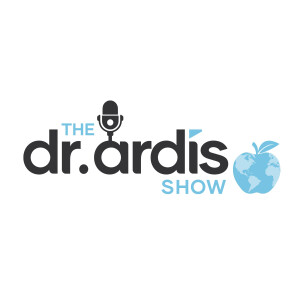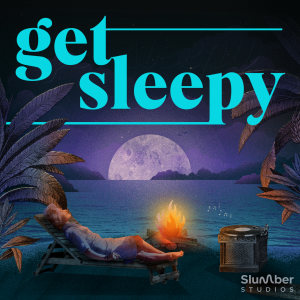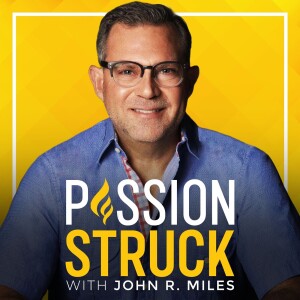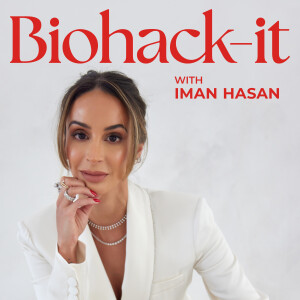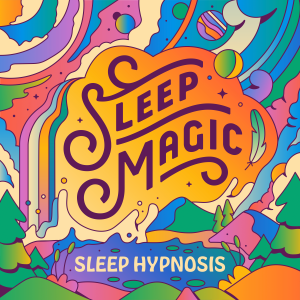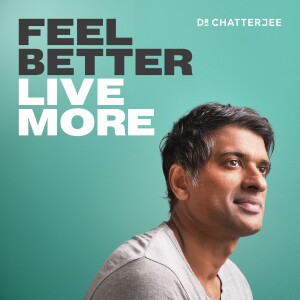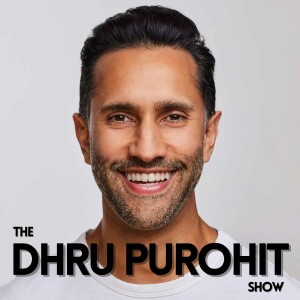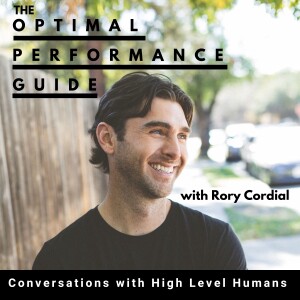

The Optimal Performance Guide
https://feeds.simplecast.com/76TaILKAEpisode List

David Spiegel- The powerful tool of self hypnosis
Dr. David Spiegel is Willson Professor and Associate Chair of Psychiatry & Behavioral Sciences, Director of the Center on Stress and Health, and Medical Director of the Center for Integrative Medicine at Stanford University School of Medicine, where he has been a member of the academic faculty since 1975, and was Chair of the Stanford University Faculty Senate from 2010-2011. Dr. Spiegel has more than 40 years of clinical and research experience studying psycho-oncology, stress and health, pain control, psychoneuroendocrinology, sleep, hypnosis, and conducting randomized clinical trials involving psychotherapy for cancer patients. He has published thirteen books, 404 scientific journal articles, and 170 book chapters on hypnosis, psychosocial oncology, stress physiology, trauma, and psychotherapy. His research has been supported by the National Institute of Mental Health, the National Cancer Institute, the National Institute on Aging, the National Center for Complementary and Integrative Health, the John D. and Catherine T. MacArthur Foundation, the Fetzer Institute, the Dana Foundation for Brain Sciences, and the Nathan S. Cummings Foundation. He was a member of the work groups on stressor and trauma-related disorders for the DSM-IV and DSM-5 editions of the American Psychiatric Association’s Diagnostic and Statistical Manual of Mental Disorders. He is Past President of the American College of Psychiatrists and the Society for Clinical and Experimental Hypnosis, and is a Member of the National Academy of Medicine.Research publications:https://scholar.google.com/citations?user=tpy76ewAAAAJ&hl=enhttps://profiles.stanford.edu/david-spiegel?tab=publicationsApp- Reveri Healthhttps://reverihealth.com/abouthttps://apps.apple.com/us/app/reveri/id1547020650Book- Trance and Treatmenthttps://www.amazon.com/Trance-Treatment-Clinical-Uses-Hypnosis-dp-1585621900/dp/1585621900/ref=mt_other?_encoding=UTF8&me=&qid= 4:20 Philosophy major before med school. “What’s fundamental to the way we think?”6:20 Lessons from the Dalai Lama10:00 Emotions- child vs adult13:00 Hypnosis- western equivalent to mindfulness in many ways14:40 Difference between mindfulness and hypnosis15:50 fMRI results with hypnosis and mindfulness20:00 3 stages of hypnosis23:35 Reveri hypnosis app29:00 Self-hypnosis32:15 Modulate pain with hypnosis38:00 Athletes control domain of awareness42:30 Stanford women’s swim team45:30 Inverse functionality in the brain47:50 Hypnosis to quit smoking and addiction52:00 Habit change and hypnosis59:45 Unconscious/subconscious1:02:00 Child mind1:05:40 L frontal theta dominant in hypnosis1:10:30 ACL tear rehab1:11:24 PTSD/trauma treatment1:15:00 Finding a hypnosis expert1:18:25 Learning more about hypnosis

James Blake- The road to mastery- paved with discipline and hard work
Ok guys today we sit down with my good friend James Blake.James is a former professional tennis player with a career high ranking of 4 in the world.I’m excited for you to meet James because he is one of my favorite people on this planet.In this episode we explore the concept of mastery. James shares his own journey to mastery in the sport of tennis and the extreme level of commitment and discipline required to get there.This hour flew by for me. I was left inspired by James strong passion to be great as well as his gratitude and perspective on life.I hope you find this episode inspiring and enjoyable. Thanks as always for listening and the support!Find James…Websitehttps://jamesblaketennis.com/Twitterhttps://twitter.com/jrblake?lang=enWiki pagehttps://en.wikipedia.org/wiki/James_Blake_(tennis) Donate to his foundation supporting cancer research...https://jamesblaketennis.com/foundation Read his books…Breaking back: how I lost everything and won back my lifehttps://amzn.to/3p3dtXNWays of grace: Stories of Activism, Adversity, and How Sports Can Bring Us Togetherhttps://amzn.to/3rcFGx2

Louis Rosenberg- How "Swarm Intelligence" amplifies human potential
Ok guys today we sit down with Louis Rosenberg.Thomas Edison, Steve Jobs….I would not be surprised for future generations to be referencing the brilliance of Louis Rosenberg in the same light.He is an innovator and by that I mean he sees things before they happen. Not only does he think outside the box and see what could be…but he also makes that vision come into our physical reality. To be able to see it…and then do it. Talk about two simple concepts but very few ppl on the planet have done what Louis has done.In this conversation we get into his journey starting as a kid from Long Island, NY…how he was diagnosed with dyslexia but instead of dwelling on the difficulties of that dx he really leaned into the creative doors that it allowed his mind to open. Which leads us into his journey West to study at Stanford where he gets his PhD… and then its an exploration of his path thus far… starting companies, creating technology, writing screen plays that have turned into films, and books….We talk about his latest endeavor which I personally am very excited about called Unanimous AI. This part of the conversation begins around min 52 for anyone that likes to listen out of order.Unanimous AI is fascinating because Louis invented the technology to allow humans to leverage the swarm intelligence that is present in Nature. The possibilities and potential positive contributions to humanity that will come out of this technology is really exciting.People are smart. We want to connect. We want to belong and contribute to something greater than ourselves in a positive way. Louis leaned into these truths and listened to nature to build us a technology to access a collective super intelligence. Thank you sir!Find Louis:Unanimous AIhttps://unanimous.ai/staff-item/louis-rosenberg-phd/Twitterhttps://twitter.com/LouisBRosenbergBooks:UPGRADE: The graphic novelhttps://amzn.to/340uj1cArrival Mindhttps://amzn.to/375LUHmTalked about in show:Ted Talkhttps://www.youtube.com/watch?v=Eu-RyZt_UasSportspicker AIhttps://unanimous.ai/sportsFeatured case Studies:https://unanimous.ai/case-studies/Oxford Sports forecastingStanford RadiologistMiami Heat season ticket holder perksXprizeUnited Nations predict food insecurity

Jack Feldman- The science and rhythm of breath
Jack Feldman is a Brooklyn, NY native with his PhD in Physics and is a Distinguished Professor of Neurobiology at UCLA. According to my friend and previous guest Andrew Huberman “Jack is the world leader in all things breathing” so who better to talk to about this amazing gift of breath than Jack.Jack discovered an area in the brain stem that is responsible for the rhythm of breath which he named the pre-Botzinger complex. He is a world leader into the discovery of the answer to this simple question…“How is the very basic rhythm of breathing generated?”In this episode we explore Jacks journey to answer this simple sounding question and he shares a lot of valuable information and insights into how our respiration impacts our health and optimal performance….including how the breath prepares the body for exercise before it even begins…why HIIT works…and very interesting findings with episodic hypoxia training.I really enjoyed talking with Jack and I hope you find value in our conversation. Thanks as always for tuning in and supporting the show!Topics covered:the physics journey of space and timepivot to study the breathphysiology of breathhow is the very basic rhythm of breath generatedpre botzinger complexsync of fireflies in nature like our breath neural activationevolutionary look at breathembryology and breathanatomy of breathexercise activate active expiration oscillatorHRV and how variance required for optimal healthbreathing rhythm found throughout entire brainlab mantra “you can’t do anything interesting if you’re afraid of failing”time scale of breath and learningsleep apnea science and treatmentpower of napping and mindfulness on our healthbreathing and emotion researchhow breathing can interrupt depression patternsthe importance of oscillations in communication across the brainrespiratory rate variance is keycellular respirationwhy HIIT is effectivethe performance benefits of episodic hypoxiaFind Jack:Linkedinhttps://www.linkedin.com/in/jack-feldman-bb493639/Google scholarhttps://scholar.google.com/citations?user=7VU42UMAAAAJ&hl=enAndrew Huberman and Jack Feldman convo on instagramhttps://www.instagram.com/tv/CEICXI0Hf0u/?hl=enThis was a live recorded conversation all about the neuroscience of breathing, its relationship to emotion, depression, opioids, and a lot more. Thank you Jack for joining me for this very stimulating and informative conversation!5 min audio from BBC interview on how the name of pre-Botzinger complex came abouthttps://www.bbc.co.uk/sounds/play/p03j049b

Andrew Huberman- The neuroscience of creativity
Today’s show is a special one for me. I have been looking forward to sitting down with my good friend Andrew Huberman and today is the day.Also this is our first sponsored episode which I couldn’t be more grateful and proud to align with. The company is Madefor. For those of you who are regular listeners..first thank you! Thank you for being curious about your own personal formula for optimal performance and just living your best life and 2nd if you’re new to the show welcome! One of the Madefor co-founders and former Navy SEAL Pat Dossett was on the show in an earlier episode so check that out. Pat is a very inspiring human so I’m confident it will be worth your time.ok what is Madefor? it’s a 10-month program that delivers the essential science, tools, steps and support to help you live better.In a world of quick fixes and fads, Madefor stands apart.Co-founded by a former Navy SEAL and built alongside a team of world class experts, Madefor delivers a science based approach to personal growth.So, if you feel like you’ve gone off track, you’re being overrun by life or you’re just ready to up your game and take back control, let Madefor be your guide and get started today. Visit www.getmadefor.com to learn more and use my personal code MFRory for 20% off the entire program or follow them on Instagram at @Madefor team.Thank you Madefor!Ok what can I say about Andrew? He has his PhD in Neuroscience. He’s a tenured professor in the Department of Neurobiology at Stanford University School of Medicine. He has his own lab at Stanford ..(Huberman Lab) where he has 2 main focuses. 1. working to halt and reverse vision loss and 2. How Visual perception and ANS arousal states are integrated and impact behavior.So obviously he is super smart and driven…but what really makes Andrew special is he cares deeply about people. He is a big strong guy on the outside but on the inside has a huge heart and really goes out of his way to help others.Many of you listening will have heard Andrew before because he has done almost every major podcast out there. He has a great Instagram channel where he shares all kinds of actionable knowledge about neuroscience so definitely check that out if you haven’t already.In this episode we talk about all kinds of topics neuroscience and performance related but really emphasize and dive deep into creativity, and how the relationship between time and space and our sense perceptions shape our reality.Ok enough talking let’s get to the show!Topics covered:sense perception shapes our physical worldsound heard in headphones vs roomvision acuity center vs peripherycontrast between various animals and human sensesspace-time link to the nervous systemhow we can think in various sensesneuroplasticitydiving birds, elephant, sloth, naked mole rat, pit vipersbrain has homunculus in cortex and cerebellumhumans have magneto-receptorslimitations on researchbrain-organs (heart, gut, etc)-body integrationembryologyzebra fishmotor learningspeed of information propagated thru the bodydeep dive into the neuroscience of creativityinfluence of breath (respiration) on ANShow to leverage creativity to nurture relationshipsexplore the realm of possibility in terms of human connectionalert vs calm or sympathetic vs parasympathetic statesentrainment (sync) in the nervous systembrain is a prediction machinehow magicians can make you blind to what is in front of youbinural beatsHRVNobel prizehow creativity maps to parts of the dayhow to leverage neuroscience to maximize creativityConnect with Andrew…Instagramhttps://www.instagram.com/hubermanlab/?hl=fr-caHuberman Labhttp://www.hubermanlab.com/index.html
You may also like
Create Your Podcast In Minutes
- Full-featured podcast site
- Unlimited storage and bandwidth
- Comprehensive podcast stats
- Distribute to Apple Podcasts, Spotify, and more
- Make money with your podcast


